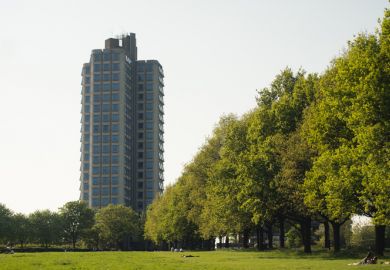The City has been forced to become more professional since the Big Bang in financial services opened it up to global, and in particular US, business. Rudi Bogni doesn't regret the end of the claret-lunch era.
The fourth and final volume of David Kynaston's The City of London , subtitled "A Club No More", shows how, between the end of the second world war and today, the religion of money triumphed over an ideology that seemed to be dedicated to the preservation of an outdated social order and of a sense of belonging to an increasingly irrelevant club. It is not material whether the actors in this drama tried to direct this change in the City or whether they were simply blown unwillingly by a wind stronger than themselves. Either way, they produced today's City, an island of globalisation within an insular and sometime defensive country.
I am the proud owner of signed copies of the first three volumes of Kynaston's readable history. But I enjoyed the fourth volume with the enhanced appetite of someone who worked in the City for almost half the time span researched by Kynaston and who has been directly involved in some of the tales he tells with the zest of a good storyteller or of some latter-day chansonnier. His sources are plentiful, ranging from official documentation and media coverage to personal accounts and saucy anecdotes; and the book's rhythm is fast enough to keep one's attention, but not so fast that there is no room for reflection - both by the author and the reader.
The stage opens with a City in ruins from air bombardment, saddled with war debt and poorly equipped with a currency barely able to cope with the conflicting demands of the welfare state and of the sterling monetary area. Kynaston quotes from the governor of the Bank of England's notes of a meeting with Sir Stafford Cripps, the chancellor of the Exchequer [in 1949]: "I reiterated the view that the main thing necessary to restore confidence was evidence of action about government expenditure, and that devaluation was not a positive policy but rather a recognition of disagreeable facts. Whilst I recognised the political difficulties, which were no concern of mine, I hoped that the chancellor would do everything possible to show that HMG were taking a firm grip on the internal situation and were not relying on help from outside and the support to be derived from eventual devaluation."
When the curtains came down in 2000, the City was still British in its way of doing business, but dominated by foreign shareholders. This time Kynaston quotes Andreas Whittam Smith: "The Square Mile has survived many crises in the past 300 years: the South Sea Bubble; the Napoleonic wars; the banking crises of the Victorian era; the first world war, which ended the supremacy of the pound sterling in world trade, and the severe restrictions on financial markets that lasted from 1940 until 1960. There is always a new threat on the horizon to replace the one most recently overcome. I confess, however, to a bit more unease than usual. For in effect we have given the keys of the City of London to its global competitors. They could, if they chose, on grounds of national rivalry rather than pure commercial calculation, set about dismantling it. The threat is there, even if distant and, in many people's opinions, improbable. It could be the stuff of nightmares."
Kynaston's own prose is rich and wonderfully entertaining, combining both the perspective of the historian and the entertainment value of the journalist. What I miss, however, is the historian's analysis. I am sure it is there, somewhere, embedded and implicit, but it is hard to dig out.
There also seems to be an imbalance between those who, on one side, expressed the forces of conservatism in the City - they loved to criticise its old funny customs but did precious little to change them - and those, on the other side, who worked hard to change the Square Mile into a more professional world, either by innovation or even by subversion. The former receive much wider coverage from Kynaston, albeit tempered by an implicit criticism.
In the 55 years between 1945 and 2000, the City of long lunches, washed down by wonderful clarets and port, turned into the City of power breakfasts, where croissants are served for the wimps and Coca-Colas are available on the side-table for the not-so-occasional addicted American. But what was it that really delivered the keys of the City to the Yankees, the Huns and the Swiss with their proverbial white socks? Was it, as hinted here, the fact that the City failed to be a meritocracy, that it kept hiring Old Etonians based on family connections rather than on academic credentials or on performance, that it failed to purge itself of non-performers and promoted conformists rather than entrepreneurs? I cannot buy this argument. It seems to me an unfounded judgement on a society whose fairness and sense of fair play has been and continues to be its strongest asset. I say this as someone who came as an unknown foreigner into a major British bank 22 years ago and found only welcoming open arms. And I am not alone in this, indeed numerous similar cases appear prominently in Kynaston's pages.
So was lack of capital responsible? Not likely: capital follows the winner.
What about lack of fighting spirit? Certainly not while the fight was open. At the time of the Big Bang in 1986, which unfortunately came more than ten years after its American equivalent, British financial firms were still competing in the global marketplace for a slot in the rarefied list of top global players.
I maintain what happened was that the game changed. It was no longer cricket, but American football. However, the Americans, who were doing both the playing and the umpiring, forgot to notify the British team. Only the continentals, with the Swiss and the Germans in front, who were used to having their rules changed by the outside world, caught on quickly.
In September 1986, there was a moment, says Kynaston, "of pure, top of the market froth" as the high-profile advertising agency Saatchi and Saatchi sought to take over Midland Bank. Although acting under advice from David Clementi of Kleinworts, the brothers did not get far. The Midland's Kit McMahon had not left the Bank of England to become part of a worldwide advertising agency, and he comfortably outmanoeuvred Maurice Saatchi, who had a less-than-comprehensive grasp of banking. I was working for Sir Kit at the time and I certainly agree with Kynaston's "top of the market froth". In retrospect, though, I must credit the Saatchis with understanding that the game had changed, well ahead of the pack at the time. Unfortunately for them, they seem to have thought it had become Wimbledon-style tennis, rather than American football.
The change may have been in the air for decades, but when it came it was brutal. I remember a retention interview with a research analyst the following year, 1987. He was earning £250,000 and had been offered twice this by a competitor. I asked him how much he had earned the year before. He said £25,000. And the year before that? £15,000. He confessed to feeling a bit insecure and worried about the loss of independence of judgement in his research - but he feared that the boom years would not last and that he might be left out of the gold rush.
The boom came, went, came again and, for some, went again, but the City was never the same again. Mrs Thatcher may not have liked the City, and was even responsible for the unthinkable and unconscionable act of introducing a penalty tax on bank profits, but her laissez-faire instinct gave the City breathing space to develop to the size and power of today, and more importantly to develop the self-confidence to outface idiotic politicians the world over and perhaps prevent them from inflicting unthinkable and sometimes untold damage on their naive electors - very much the theme of Kynaston's early pages.
Two time markers, one from the 1950s and the other from 1987, seem particularly relevant to me. Let us listen to Kynaston: "The official line was that the coming of investment analysis later in the 1950s, fuelled by the institutions' demand for greater professionalism, dramatically changed these practices." "The days of the third-hand tip offered over a glass of sherry, are happily long past," the member-journalist Donald Cobbett optimistically declared in 1957. The truth was surely different. The jobber Geoffrey Green recalled insider trading as a fact of life in the Stock Exchange of 1960. Perhaps Peter Spira put it best: "Insider dealing was a regular occurrence... The reason why people had their investment affairs managed by merchant bankers and stockbrokers was precisely because they had better information."
The second marker is of course Black Monday. Kynaston again: "On the morning of Friday, October 16 those living in the southeast of England woke up to a scene of devastation. Telephone lines were down, trees lay across roads, trains were not running... The Crash of '87 - the most sensational event in the world's financial markets for over half a century - took place on Monday the 19th and Tuesday the 20th."
I remember driving into the City on the Friday and spending the day trying to find out whether the Bank of England had decided it would be a trading day or not. At the weekend I travelled to Sydney and then to Hong Kong to respect long-standing commitments. As I arrived in each of these cities, the local stock exchanges closed down. It seemed the end of an era. In fact it was only a new and better, more professional, more rewarding, although much tougher, beginning.
Kynaston's book brought it all back. What a long road we travelled in the City in those years. Personally, I would not want to go back. The present may seem rough and sometimes unpleasant, the past gentle and quaint. But we have learned so much; we have created so many new opportunities, so much new freedom.
When I hear the debate as to whether capitalism won over communism, triggering perhaps the end of history, I get very annoyed. Capitalism did not win a thing. Thatcher and Reagan may have pushed down communism's crumbling walls, but the revolution was elsewhere. It was in places such as the City of London, beacons of freedom, where young men and women of any nationality could go to work every day reporting to a person of different background and culture, working for shareholders perhaps of a different country, free to choose their career, employer, lifestyle, perhaps even work attire. Free to speak their mind and to pay the price for it if necessary. But what a small price in comparison to that of living in an autocratic society such as the Soviet Union.
Because I believe this, for me Kynaston's final volume in his history of the City of London seems a must, not only for the regular users of the Drain and London Bridge, but for historians, sociologists and political analysts too. Let me go further: everyone with more than a passing interest in how the financial and the "real" world are inextricably linked should read this fascinating book.
Rudi Bogni is a former investment and private banker who is currently a director and trustee of several companies and foundations.
The City of London Volume IV: A Club No More 1945-2000
Author - David Kynaston
ISBN - 0 7126 6735 0
Publisher - Pimlico
Price - £16.00
Pages - 886
Register to continue
Why register?
- Registration is free and only takes a moment
- Once registered, you can read 3 articles a month
- Sign up for our newsletter
Subscribe
Or subscribe for unlimited access to:
- Unlimited access to news, views, insights & reviews
- Digital editions
- Digital access to THE’s university and college rankings analysis
Already registered or a current subscriber? Login



